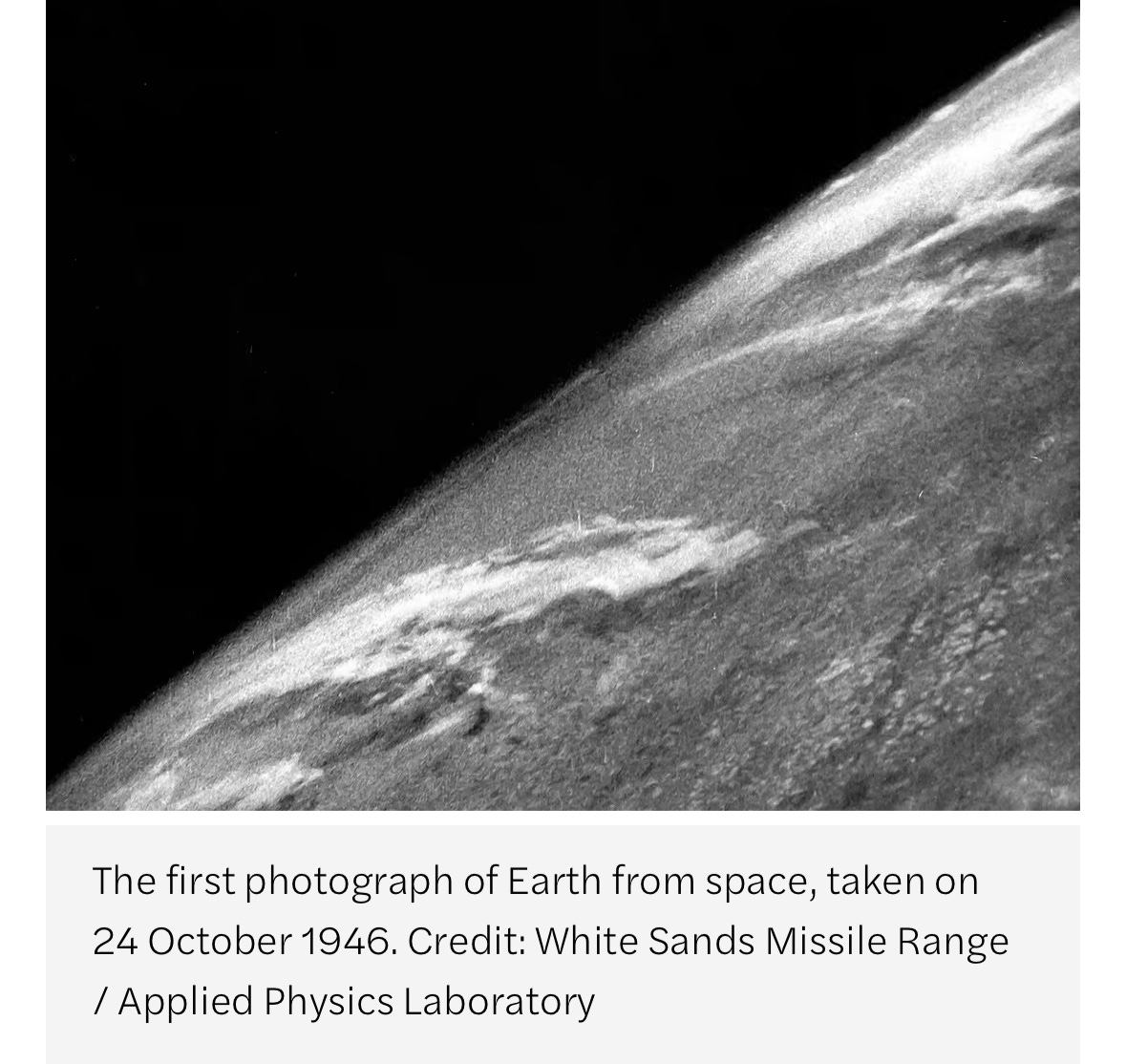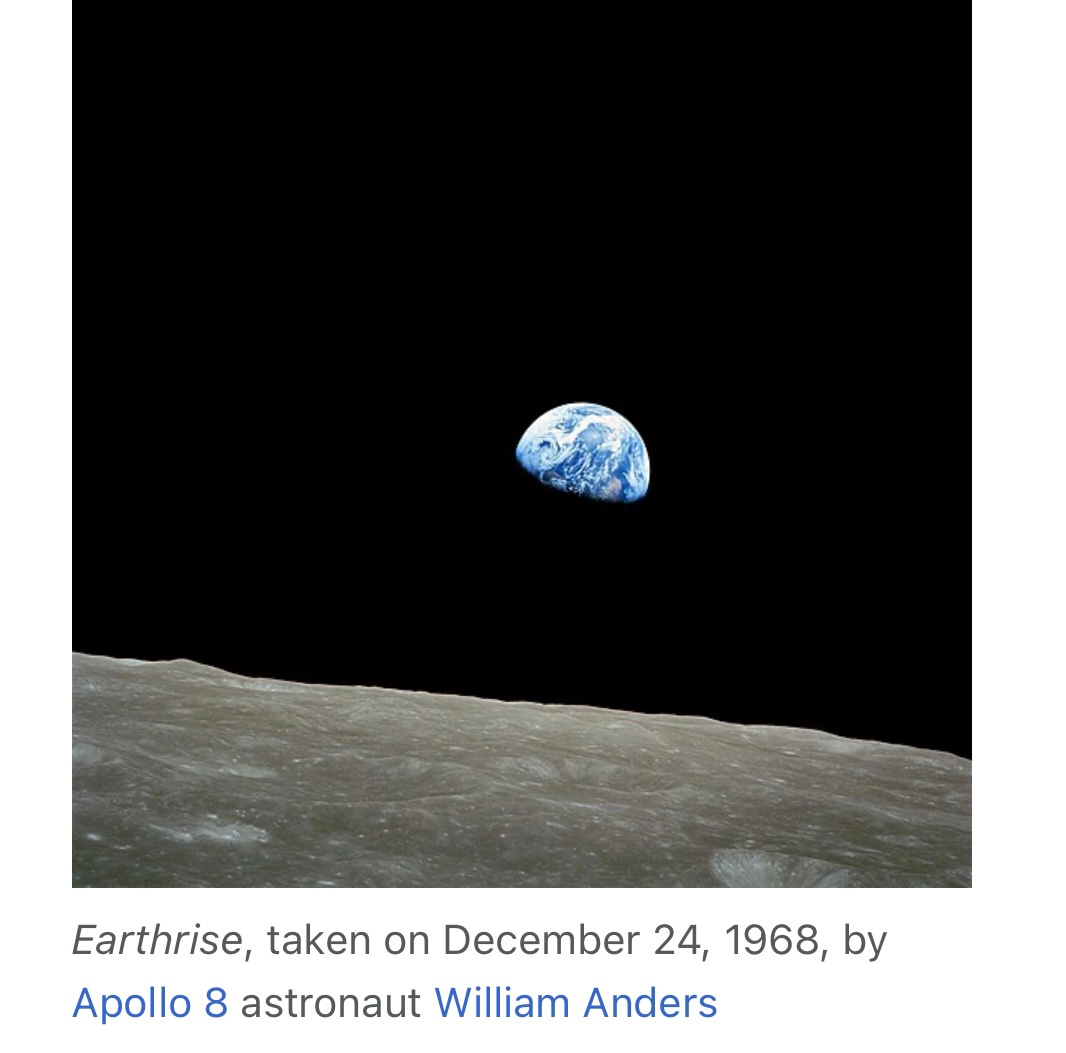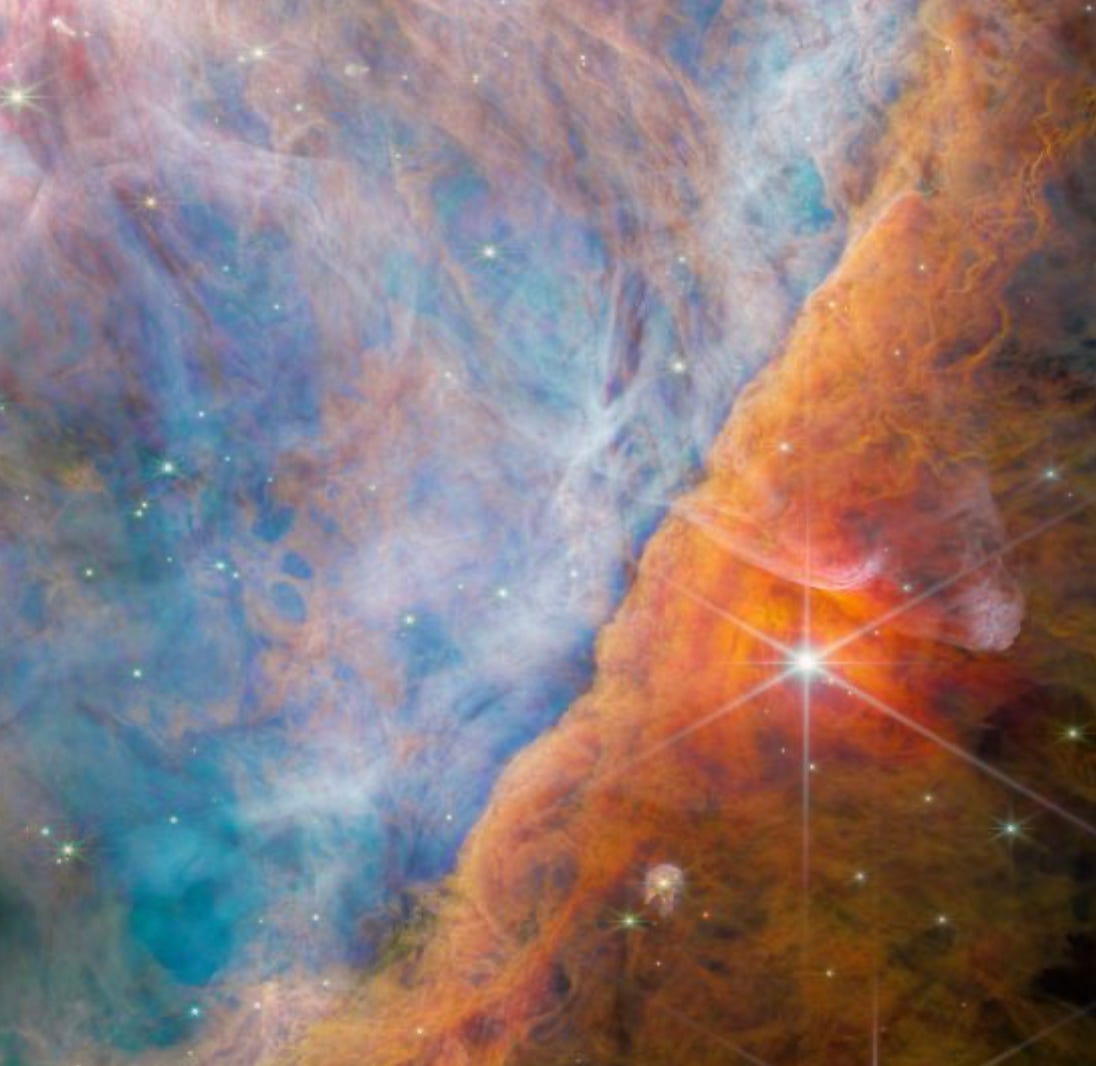Thanks to all of you for your good wishes. Fortunately, I tested negative for Covid, and am feeling much better today, so I’m back to writing!
Steve
July 4 of this year was the hottest ever recorded. Earth’s global average temperature of more than 17 degrees Celsius (62.6 Fahrenheit) may well have been the hottest it has gotten in the last 125,000 years.
Washington Post, July 13, 2023
Do you remember the advice Mr. McGuire gave young Benjamin in “The Graduate?” In a way, it was spot on:
It is estimated that by 2050 there will be more pounds of plastic in the ocean than fish. It is a staggering human achievement given that plastic was invented in 1907, while the oceans are 3.8 billion years old, and fish started swimming in them about 550 million years ago.
Before 1946 there had never been a photograph of the earth. What it looked like was a function of imagination. Here is the first image ever taken from space:
It comes from a captured V-2 rocket fired from White Sands, New Mexico.
Twenty-two years later the most famous photograph in human history was taken on Christmas Eve of 1968 by Bill Anders aboard Apollo 8 as the space craft rounded the moon. It is called EARTHRISE:
Think about the proximity of 1968 to today and consider the immense privilege it is to be alive in this age of “miracle and wonder.” No human beings had ever seen what our beautiful planet looked like before these photos.
Fifty-four years have passed since that stunning photo — before the release of this image from NASA’s Webb telescope:
What you are looking at is the beginning of time. Someday, our descendants will reach those stars.
Think about those three photographs spanning over 77 years against the 4 billion of Earth’s existence. Look at humanity’s expanding perspective over those 77 years as the lens has broadened and the aperture of knowledge has expanded. The grainy images of a slice of cloud-covered Earth in 1946 have given way to the sublime and existential.
Human beings crossed a rubicon on July 18, 1945 in Los Alamos, New Mexico. On that day, mankind evolved. The human race became capable of self-extinction. Here is what the moment looked like:
None of this was lost on the generation that built and used the world’s first atomic weapon to end the most catastrophic war in human history. Mankind has made it for almost 80 years without reaching Armageddon, but as it turns out, nuclear destruction wasn’t the Earth’s only existential threat. Since the beginning of the Industrial Revolution in 1830, we have poisoned the Earth for approximately 193 years — for those who are counting.
A great debate has raged over this poisoning across the world, and has been at the center — or maybe more accurately — at the periphery of the US political debate for the last quarter century. This seems like a good week to look back and see what side was more right than wrong.
Here is an excerpt from remarks given by President George W. Bush in 2001 addressing climate change. It perfectly captures the Republican position on the issue from that time.
First, we know the surface temperature of the Earth is warming. It has risen by 0.6 degrees Celsius over the past 100 years. There was a warming trend from the 1890s to the 1940s. Cooling from the 1940s to the 1970s. And then sharply rising temperatures from the 1970s to today.
There is a natural greenhouse effect that contributes to warming. Greenhouse gases trap heat, and thus warm the Earth because they prevent a significant proportion of infrared radiation from escaping into space. Concentration of greenhouse gases, especially CO2, have increased substantially since the beginning of the Industrial Revolution. And the National Academy of Sciences indicates that the increase is due in large part to human activity.
Yet, the Academy's report tells us that we do not know how much effect natural fluctuations in climate may have had on warming. We do not know how much our climate could, or will change in the future. We do not know how fast change will occur, or even how some of our actions could impact it.
The man derided as “Ozone Man,” Vice President Al Gore offered this view in the 2000 campaign. Here is an excerpt from ABC News:
Stumping in Missouri, Gore called global warming “a moral issue,” citing a report released today by a United Nations-sponsored panel of scientists that concludes pollution has “contributed substantially” to the phenomenon.
Talking to workers at a diner in Kansas City, Gore said Bush was not committed to acting in order to stop the rise in the Earth’s temperature.
“[Bush] has said that he’s not convinced that the pollution is causing it, and that he’s not convinced we should do anything other than just study it — and I disagree with that,” Gore said.
Later, at a speech in Davenport, Iowa, Gore referred again to the study, saying it showed global warming was a more severe threat than most scientists previously believed.
Instead of just going up a few degrees in the lifetimes of these kids, unless we act, the average temperature is going to go up ten or eleven degrees,” Gore said.
The most important part about what Al Gore said, and the thing that he was most right about besides the science of the matter is his distinguishing it as primarily a moral matter, which it is. It is clear that time is up to deal with consequences of progress, lest we kill the world. The ocean temperature off of Miami is 97 degrees Fahrenheit. Temperatures are reaching 130 in Death Valley, 120 in Italy and over 100 in Northern Canada.
The weather today is profoundly different then when I was in my 20s and 30s. The size and magnitude of weather catastrophes from extreme fires, hurricanes, cyclones, flooding and other natural phenomena speak for themselves.
There is something happening here, and it is perfectly clear. There can be no solution to this issue without the active participation and cooperation of the United States, China, India, Brazil and the EU. It is obvious that time is running out to finalize a path forward. This generation did not cause the climate catastrophe facing us, just as previous generations did not cause the momentous events thrust upon them. It is, however, obligated to begin the healing process for our progeny.
There should always be room for debate around the parameters and efficacy of solutions to this urgent moral issue, but the scale of the danger, and who was more right than wrong is now settled. It will not be enough for humanity to keep its finger off the Armageddon button. Saving the future will require the most difficult task ever confronted by human beings.
The challenge isn’t a scientific one, though the science and innovation matter a great deal . The core of the challenge is profoundly human. Can we figure out how to cooperate at a planetary scale? Can we learn that our nations are comprised of human beings who, despite having different skin pigmentation, facial structures and languages, are the same people? Can we learn to understand that our home is the Earth? Can we love each other enough to save it? Or, do we hate each other enough to kill it? The more I look at the weather reports, the more I am convinced that we are the generation that is going to get to find out the answer.








You are younger than I (75yrs.); my health is declining rapidly. I feel compelled to contribute in the ways that I still can to find and promote the solutions to the global existential crisis of our time. I will continue to take the measures that I can as an individual and vote for candidates in governance who recognize the threat that has arrived NOW but it is essential that the petty bickering of politicians about things of so much less importance be cast aside to devote our attention to the CLIMATE CRISIS. The “Weaponization “ and other nonsense cluttering our halls of Congress and in other nations as well must be seen as the detractors they are if we are to salvage the gem of the Universe in all her beauty and biodiversity. Our attention must be clear and focused. Those who relish power and wealth are going to have to compromise or die. It’s that simple. ❤️🇺🇸🌎🔥🌊
The Giving Tree By Shel Silverstein
"I am sorry," sighed the tree.
"I wish that I could give you something....
but I have nothing left.
I am just an old stump.
I am sorry...."
"I don't need very much now," said the boy.
"just a quiet place to sit and rest.
I am very tired."
"Well," said the tree, straightening
herself up as much as she could,
"well, an old stump is good for sitting and resting
Come, Boy, sit down. Sit down and rest."
And the boy did.
And the tree was happy.
--------------------------------------------------
The earth gives and gives and we take and take until there will be nothing more to take.
We know better so let's do better!